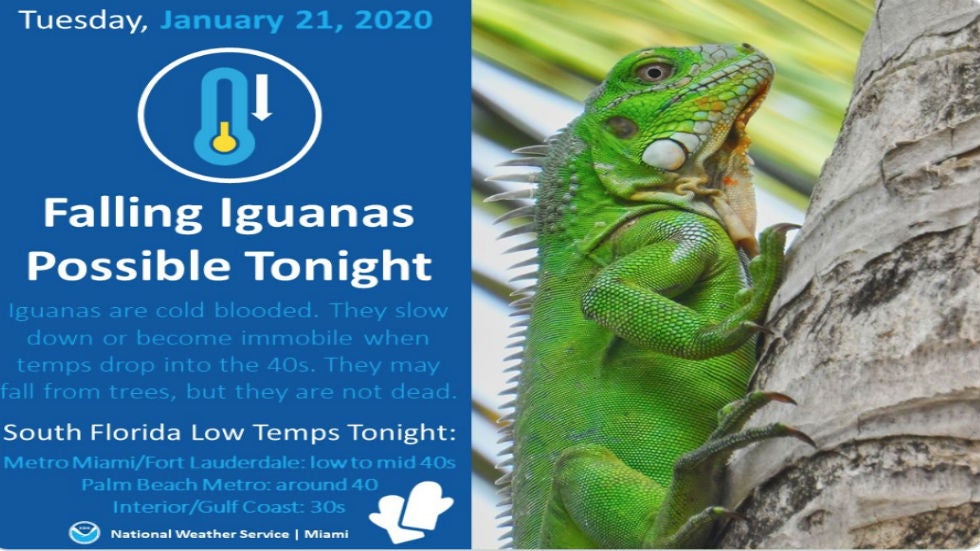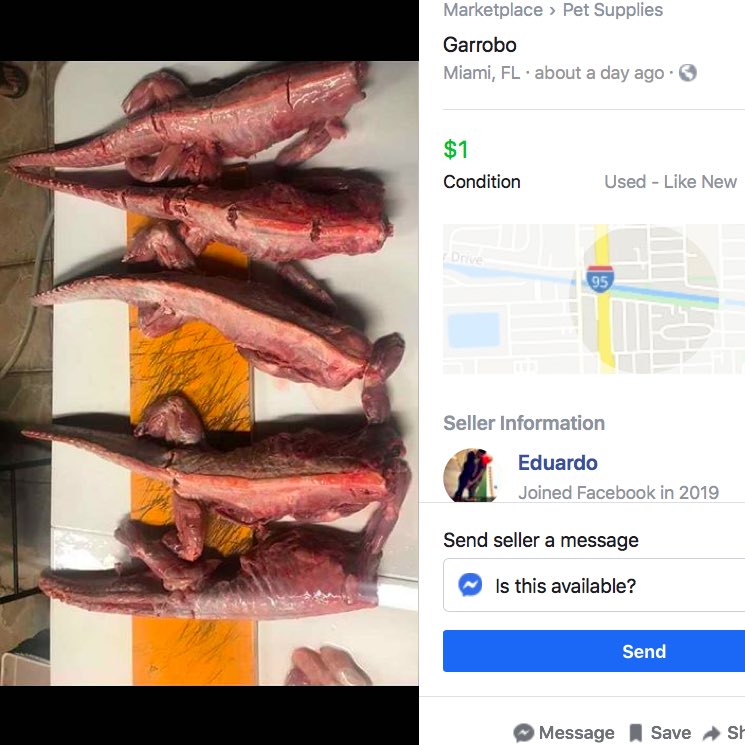Iguanas are falling from trees, and people are selling the meat online
Iguana meat, dubbed “chicken of the trees,” started showing up on Facebook Marketplace overnight, as the temperature dipped into the 40s.
A stunned iguana lies in the grass at Cherry Creek Park in Oakland Park, Fla., Wednesday. The National Weather Service Miami posted Tuesday on its official Twitter that residents shouldn't be surprised if they see iguanas falling from trees as lows drop into the 30s and 40s. The low temperatures stun the invasive reptiles, but the iguanas won't necessarily die. That means many will wake up as temperatures rise Wednesday. (Joe Cavaretta/South Florida Sun-Sentinel via AP) [JOE CAVARETTA | AP]
By By Carlos Frias
Published Earlier today
Miami Herald
Mango season may be months away, but if you live in South Florida today, your trees may be ripe for the picking — of iguanas.
Iguana meat, dubbed “chicken of the trees,” started showing up on Facebook Marketplace overnight, as the temperature dipped into the 40s. The green iguanas are an invasive species,
stunned lifeless by South Florida’s occasional cold snaps, and they die if the chilly weather holds. The National Weather Service even tweeted to watch out for falling iguanas.
Beware of falling iguanas in South Florida, National Weather Service warns:
https://weather.com/news/news/2020-01-21-falling-frozen-iguanas-florida …

That apparently makes them easy pickings for backyard harvesters.
Several ads for skinned and butchered iguanas, looking like Peking not-duck, were posted in Miami, Doral and Homestead. Some of the ads, however, were posted days ago and show iguana meat that has clearly been frozen (though not by South Florida’s climate).
At least
one ad showed what looked like freshly prepped garrobo — a name often used as interchangeable for iguana in parts of Latin America. (The animals may be slightly different species, but both are often found as invasive in South Florida.)
You know it’s cold when Facebook Marketplace got garrobo meat for sale
#BecauseMiami #ChickenOfTheTrees

But can you actually eat them, or should you?
You absolutely can — as long as the food comes from a reputable processor, according to the University of Florida Institute of Food and Agricultural Sciences. They are commonly hunted in Central and South America and parts of the Caribbean and are an “economical source of protein,”
according to the organization’s post.
“There is a reason why these invasive iguanas are hunted in their native countries as food to the point where they are considered endangered species,” Frank Mazzotti, professor of wildlife ecology at the UF/IFAS Fort Lauderdale Research and Education Center in Davie, Florida. “They are excellent to taste, and they are a great source of food.”
“Some say they look like alligators or mini-dinosaurs, and others say they look good for dinner!” she wrote.
Because of the salmonella risk, IFAS warns not to try to make iguana ceviche. Instead, the meat should be cooked through to at least 165 degrees.
IFAS even provided several recipes, including one for
iguana tacos for newbies: “For people who aren’t accustomed to cooking iguana, it is suggested that an easier route may be to make iguana tacos or burritos.”














